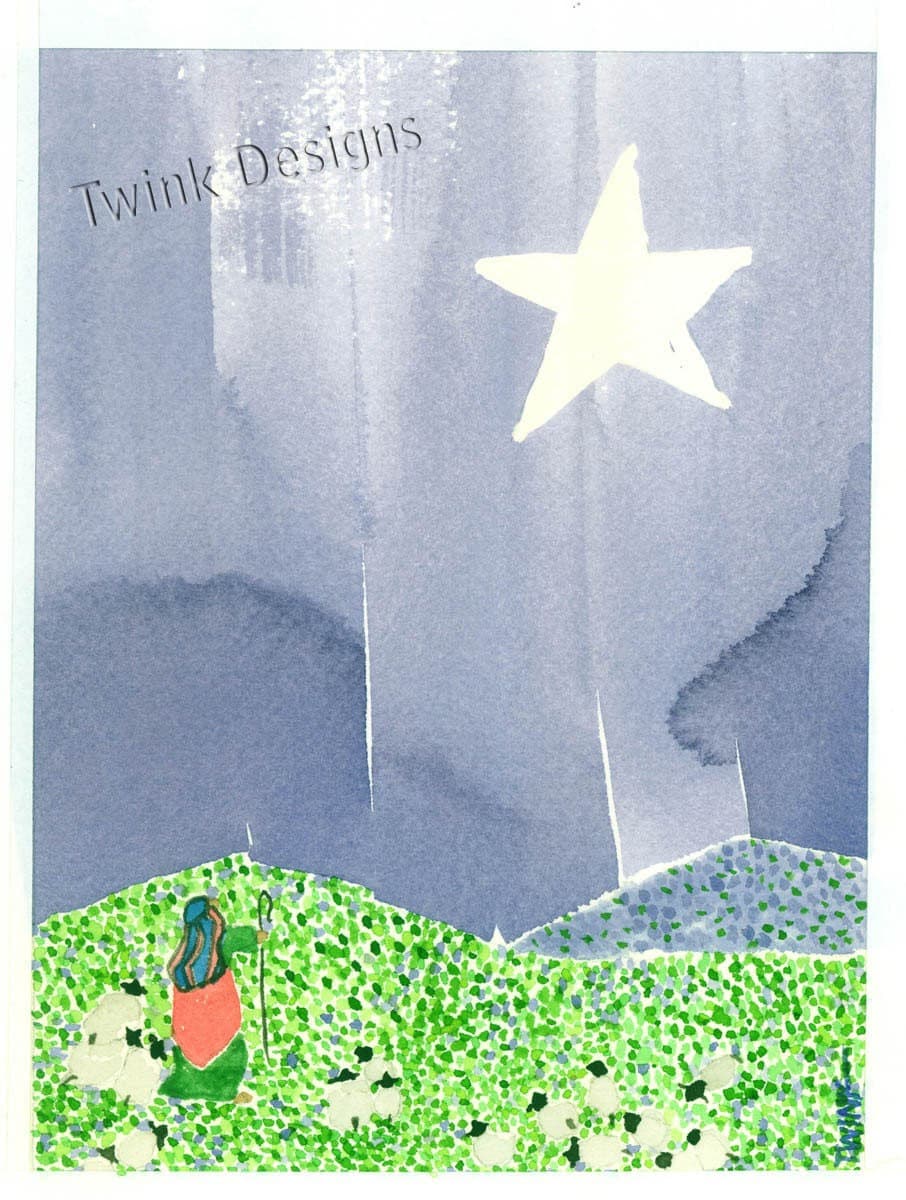“I’m sorry.” Professor McGrail shook his head. “Without the Foundations course, you are not prepared to progress through the requirements of this major.”
“I tried to sign up for it, as soon as I could register. But every section was already full! Couldn’t you--”
“I’m afraid not. Try again, next semester. Or perhaps you should reevaluate your academic goals, Miss, um . . .”
“Erickson.”
“Yes, good-day, Miss Erickson.”
I could not believe it. I had dutifully completed most of my general requirements in my first year, and I was ready to embark on my life work. As long as I could remember, I had wanted to be an archeologist. I could see myself sifting through the soil of the millenia, piecing together the puzzles of the past. I had hoped the professor could waive the requirement, temporarily, or persuade one of his colleagues to add me, halfway through the semester, to a crowded Foundations section. But this one unavailable course still stood in my way.
I sat down at the computer before starting my math homework, and clicked through the class schedule. What could I possibly take next semester? Would they throw me out for taking too many electives? Once again, I found myself looking longingly at the archeology offerings. One more time, I looked at the Foundations sections, each one boldly labeled FULL. Except for one, at the bottom of the list. Had that been there before? It was a second block class, so it started the next week, and it fit perfectly into the hour I had left for lunch on Tuesdays and Thursdays. Lunchtime was a small price to pay for my dream. I selected the class, and printed out my new schedule before anything could change.
I pulled out my schedule after Spanish class the next Tuesday, to check the room number for Foundations. But it was not listed in the Smith building, like most of the other archeology classes. I had not brought a map with me, so I headed for the information booth in the student center.
“The Doyle building?” The attendant peered at the campus map. “ I don’t think we have one.” She typed something into her computer. “Wait. Phineas Doyle was one of the founders. His historic home is now the Alumni Society’s office. I don’t think any classes are scheduled there.” I showed her my schedule. She shrugged and pointed to the map. “The Alumni Office is here, on the south edge of campus. Good luck!”
I was nearly out of breath when I found the small, ivy-covered cottage. I had to admit that it did not look like a classroom building. Glancing toward the small window next to the door, I saw a dark shape moving within. What could that be? I peered through the wavy glass. The professor was wearing his full doctoral robes. I had never seen any other teacher dress so formally for class. He must have wanted to make a good impression the first day. I eased the door open, hoping not to disturb him ten minutes into his lecture. But his back was to the door as he wrote dates on a blackboard, and he did not seem to notice as I slid into a desk. Luckily, a syllabus was already there. I pulled out my notebook and copied the chalkboard furiously, hoping I had not missed anything. After a few minutes, I realized that the room was awfully chilly. Why were they still running the air conditioning in October?
Doctor Altgraber was an old-fashioned lecturer. He invited no discussion, and my classmates were silent. Halfway through the hour, my stomach growled loudly. “Excuse me,” I whispered, as the echoes died away, but no one turned to look. I continued taking notes. When the lecture ended, I was the first student out of the door, running back across campus for my canoeing class.
Doctor Altgraber’s chosen text was out of stock at the bookstore, so I ordered a copy online. Then I found a dog-eared copy of
Fundamental Field Archeology in the library. It looked almost like an antiquity itself, but the first chapter was a good description of the early history of the discipline.
On Thursday I packed an extra sweater, and a lunch to gulp down on the way to Foundations. This time I arrived five minutes late, but, warm and fed, I felt much more comfortable during this lecture. A little too comfortable, in fact. Doctor Altgraber’s voice was calm and soothing, and soon I found myself nodding. A young man in a crew cut at my left caught my eye, grinned, and yawned theatrically. I couldn’t help it, but began to yawn myself. Then I found a note on my desk.
"Don’t fall asleep!" the neat script read. I looked around. To my right, a handsome guy with a dark pompadour smiled, but there was urgency in his eyes. I sat up and refocused on the professor’s recitation.
I arrived in class already tired the next Thursday. I had been up late studying for a Spanish test. I tried my hardest to keep taking notes, but each line dwindled to an illegible scrawl. My head drooped toward my chest. Abruptly, my head jerked up again. At the same time, my arm twitched, sending my pen flying. Suddenly awake, I watched helplessly as the projectile soared straight toward the beehive hairdo of a young lady two rows away. I winced at the moment of impact. Then I heard the pen clatter to the floor. The student was still calmly watching the professor. The boy with the pompadour winked, but no one else seemed to have noticed.
More alert now, I took a closer look at my classmates. A couple of rows ahead of me, two girls pulled out their cell phones every few minutes. They appeared disappointed each time, as if they had not received an expected message. They were the most normal-looking people in the room. A guy with bushy sideburns and plaid trousers lounged in a front-row seat. A prim girl with a big bow in her hair wore a flowered dress with puffy sleeves. I saw bellbottoms and pegged jeans. The young lady filing her nails near the wall was actually wearing a poodle skirt. Did the professor advertise this section at the thrift store?
My textbook arrived in the mail that afternoon. It was less worn, but no newer than the copy in the library. I guessed Doctor Altgraber liked to use original sources.
I settled into a pattern in the Foundations class: arrive late, listen to droning lecture, try to take notes, start to feel drowsy. When I was nearly asleep, the cute guy with the pompadour would pass me a note, or catch my eye, do something to attract my attention and wake me up. I wished I had time to talk to him after class, but I couldn’t be late for canoeing. One day he signed one of the notes. I smiled at him, but he was already looking back at the chalkboard.
No matter; I was a modern girl. I looked up “J. Ingledent” in the student directory. He was not there. Hmm. Maybe he had registered late, or a careless secretary had left him off the list. I tried Facebook. Still no entry. Strange. Finally I found a Jerry Ingledent, listed among dead alumni in an old college newsletter. Maybe my friend was named after his father. I started thinking of him as Jerry, and watched for him around campus. Once I thought I saw him at a retro dance in the student center, and a couple of times I thought I glimpsed him through the stacks in the library, but he was never near enough to hear my greeting.
One Tuesday in early December I arrived at class determined not only to stay awake, but to start a discussion. According to the syllabus, we were going to cover one of my favorite topics, the Dead Sea Scrolls. I shivered with anticipation, having become accustomed to the chill of the old classroom. I listened intently as Dr. Altgraber described the 1947 discovery of ancient records by simple shepherds in desert caves, and their subsequent study by learned scholars. I raised my hand.
The professor looked rather startled. “Yes, Miss, um . . .”
Should I change my name to Um? “Erickson, sir.” I had never called anyone “Sir” in my life, but it seemed to fit.
“Miss Erickson?”
“What is your opinion on the accessibility of these records in modern times? The early scholars were very possessive of the documents and their translations, but now with the internet--”
He squinted at me from beneath his mortarboard. “You’re a live one, aren’t you?” He resumed his lecture without further comment. He covered the dating of the documents by the style of pottery in which they were found, and mentioned his hopes for good results from G. L. Harding’s team of international experts. And then he moved on to the finding of the Upchurch Hoard in 1950.
I was stunned. How could a few Roman coins in England compare with the cultural riches of the Dead Sea Scrolls? And what sort of stuffy professor refuses to answer questions? I shot a questioning look at Jerry, but he only shrugged.
The next week I went back to see Professor McGrail for advice on registering for the next semester. “Miss Erickson,” he sighed. “Must I remind you that without the Foundations class--”
“But I’m taking it now, from Dr. Altgraber.”
His eyes grew round. “Really? I . . . I didn’t know he was teaching this term.”
“You didn’t?”
The professor regarded his desk. “Dr. Altgraber is an emeritus professor. He teaches a class now and then, when he feels like it.” He looked up again. “Has he graded any of your assignments yet?”
“No, the whole grade is determined by the final exam.”
“Do me a favor, if you will. He can be rather, well, eccentric in his recording. So you’ll need to insist that he grade your final exam before you leave the classroom, and bring it to me.”
“What about--”
“Just bring it to me.”
I arrived for the final exam with unusual punctuality. I was confident that I had filled the gaps in my notes with information from my primordial textbook. The professor had never mentioned any more modern developments, and I thought I had a pretty good grasp on the history.
There were no bubble sheets for Dr. Altgraber’s test. I had not written that much in cursive since the fifth grade, but I finished the test with time to spare. I checked it over one more time, then nervously approached the professor’s desk.
“Dr. Altgraber, sir, I’m very anxious about my score. Will you please grade the exam for me now?”
He looked at me as if he had never seen me before. I put on a pleading expression. “Very well, Miss . . .”
“Thank you.” I went back to my desk. Jerry gave me the thumb’s up. I bit my lip as I waited, watching all the other students writing steadily. Finally the professor stood, handed me my paper, and collected the others.
I was surprised to find Professor McGrail waiting for me outside the Doyle building. He looked relieved.
"Do you have it?" I handed him the exam without looking at it. “Interesting,” he commented as he leafed through.
I watched my classmates streaming out of the door. I waved to Jerry, and he walked over, smiling. “You made it,” he said. He looked pleased, but wistful.
“Thanks to you,” I replied. “Did you pass?”
“Oh, I passed long ago. But, as the professor likes to remind me, I’ll always be late. So long!” Jerry waved and strode away, disappearing into the dusk.
Professor McGrail looked up, tactfully pretending he hadn’t heard. “I’m afraid I was not completely forthright about your registration in this class.”
“What do you mean?”
“Dr. Altgraber was a real asset to our department long ago. However--”
“I can tell he’s not up on modern methods, but is that a problem in a historical class?”
“Well, he suffered a heart attack during Commencement in 1953. He, ah, did not recover. But he does still insist on teaching.”
“‘Did not recover?’ Do you mean he’s dead?”
“Well, yes, precisely. The Theatre department invites him to play in Hamlet from time to time, but he complains about typecasting . . .”
My shivers had nothing to do with the frigid evening air. “What about the other students?”
“In much the same state, I believe. If you had fallen asleep in class, you would have been doomed, with them, to repeat the course as often as Dr. Altgraber wants to teach it. He’s been boring students to death for over half a century.”
I was shocked. “Why didn’t you tell me to quit the class? Some counselor you are!”
“I’m sorry. But it seems that dropping out has the same effect as dropping off. Three years ago, I lost two students by advising them to withdraw.” He looked terribly sad.
“Oh,” I whispered. “They are still waiting for you to call.”
The professor sighed again. “At least you survived.” He walked away with my exam. I looked through the window again. I saw no robed professor, no desks, just a comfortable sitting room.
“Wait!” I started to run after Professor McGrail. “Do I still get credit?”

































